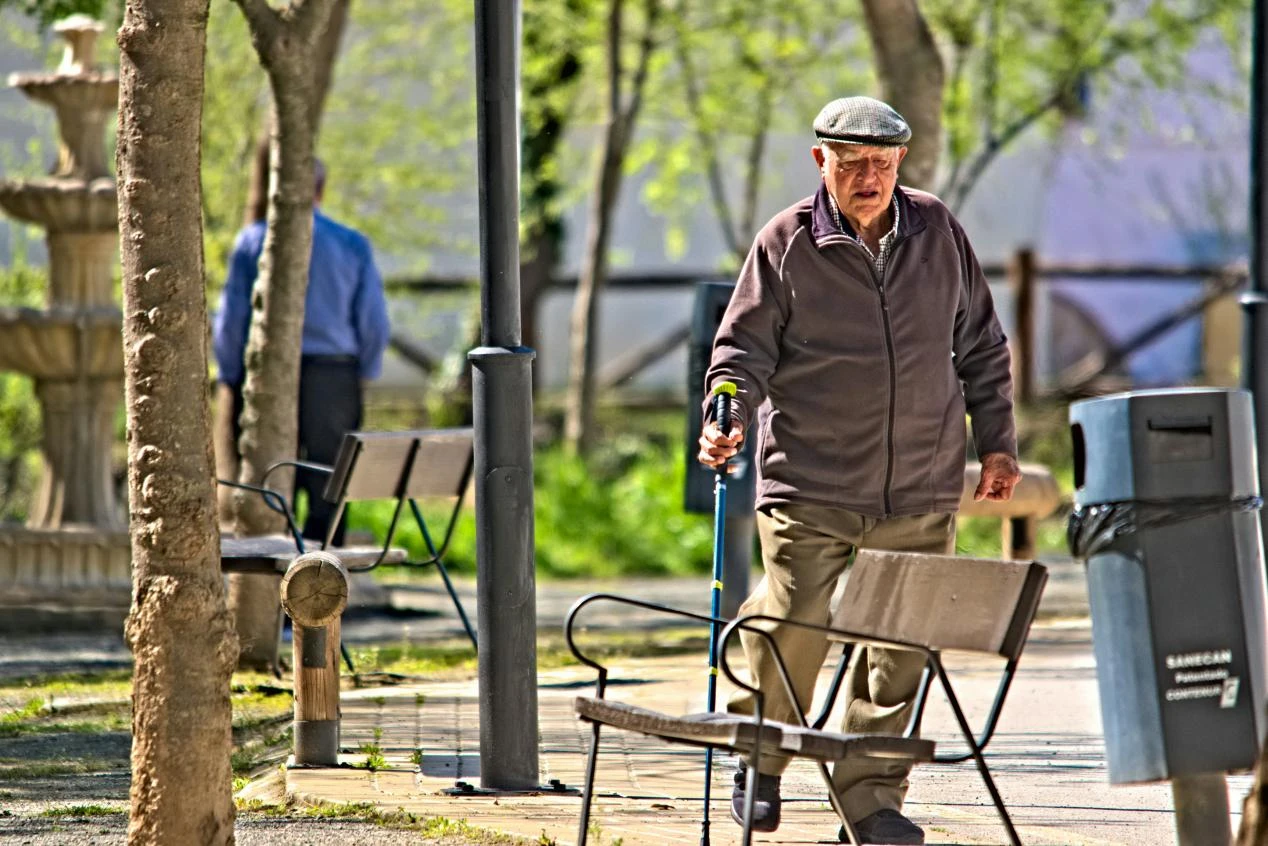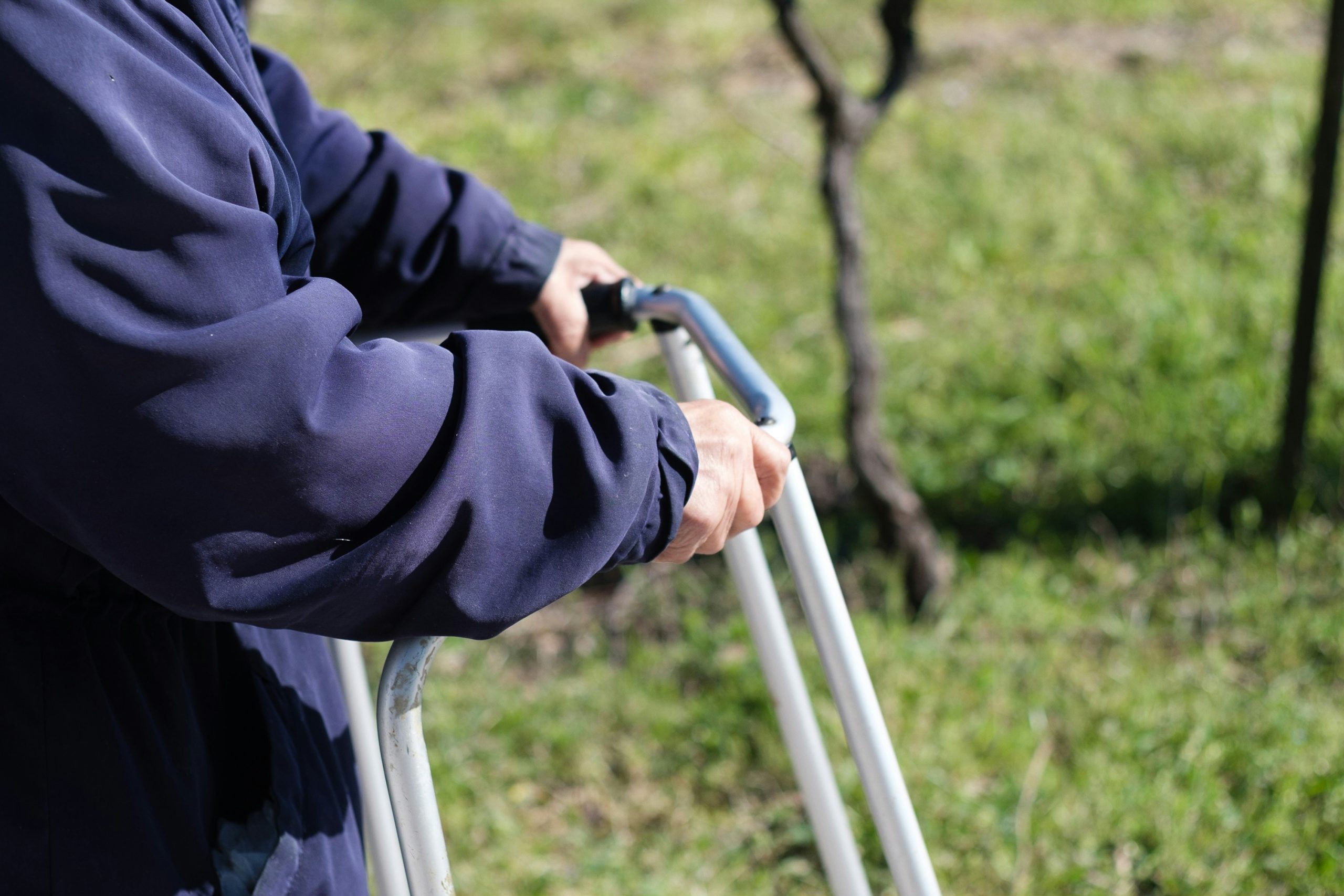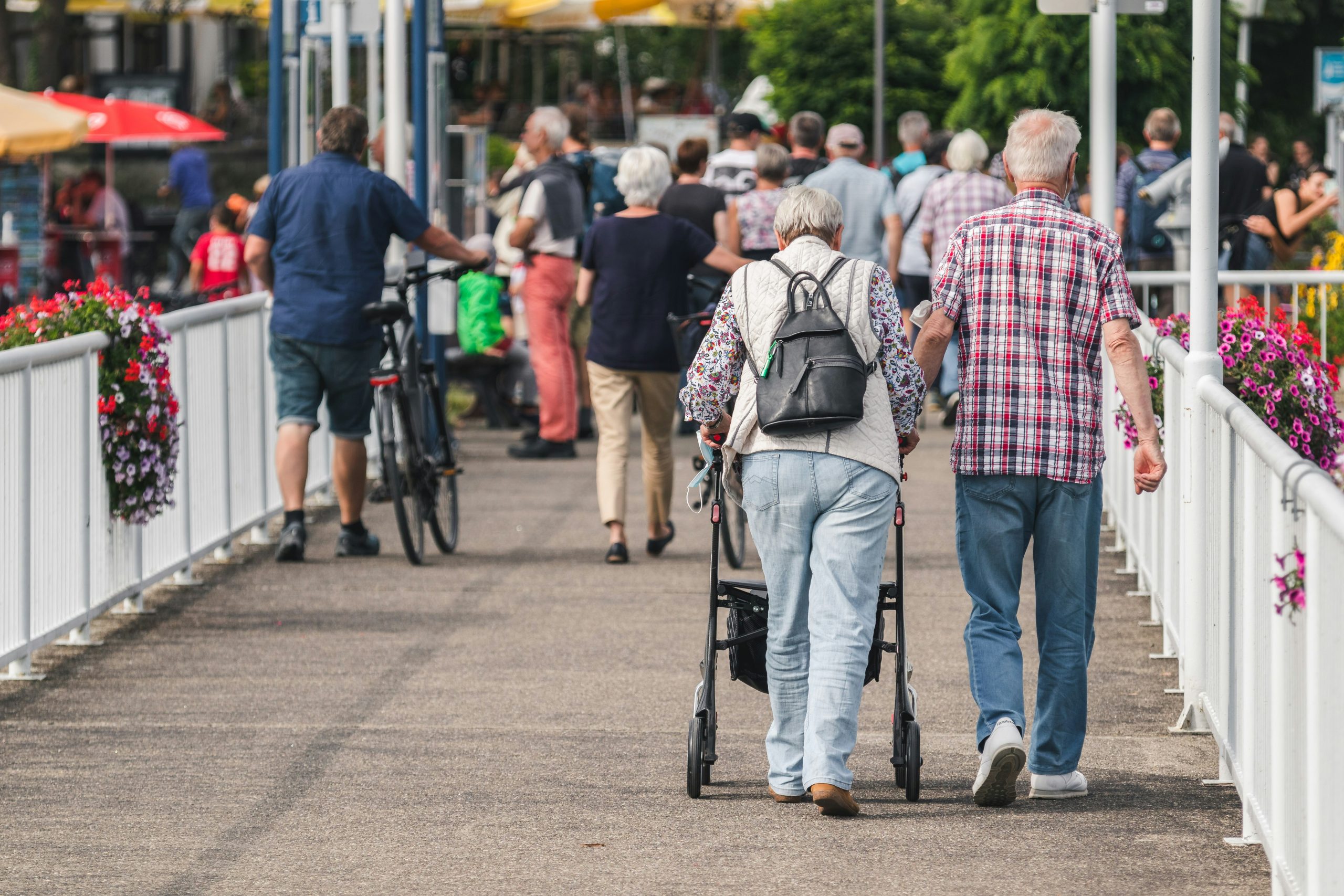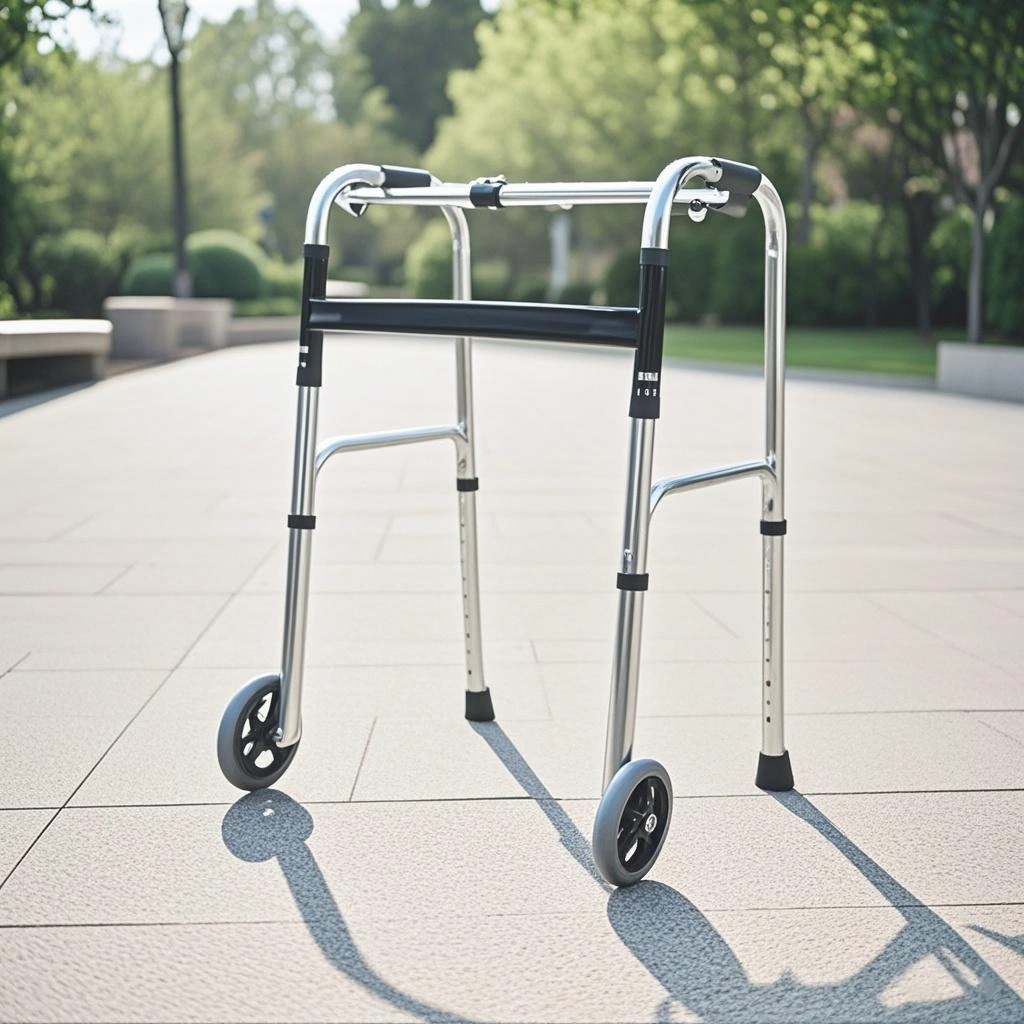Choosing the Best Walking Aid: A Guide to Canes, Walkers, and Rollators
Time : Sep 08, 2025 View : 2,079
Mobility challenges touch many lives, from those mending after surgery to those coping with lasting issues like brittle bones. Discovering the perfect walking help can lift spirits and keep daily life steady. This guide digs into canes, walkers, and rollators with care. We’ll highlight what makes a reliable device special. And we’ll walk you through picking one that suits you best. Along the way, you’ll find handy tips pulled from real-life stories and health data.
What Makes a Good Walking Aid?
A strong walking aid does more than just prop you up. It slips easily into your routine, whether you’re weaving through a busy market or shuffling around the living room. The way it’s made, how simple it is to handle, and how it adjusts to different builds all matter. These pieces shape how safe and comfy it feels. Take a poorly put-together aid—it might cause stumbles or wear you out. On the other hand, a well-built one keeps your steps sure. Health numbers from the National Institute on Aging show that the right aid can cut fall risks by up to 25% for older men.
Materials play a big role in durability and feel. Aluminum material shrugs off rust, perfect for damp spots like bathrooms. Steel also holds up well for heavier people, though it often doubles the weight, hitting around 10 pounds while aluminum hovers near 5.
Weight matters for portability. Lightweight walkers typically weigh less than 6 pounds, making them easier for people with arthritis and the elderly to carry up stairs.
Adjustability ensures a custom fit. Most models allow height changes in 1-inch steps, covering users from 4’10” to 6’4″. An adjustable walking frame prevents hunching, which could worsen back issues over time. Physical therapists often stress measuring from floor to wrist crease for the ideal setting—get this wrong, and discomfort sets in after just 20 minutes.
Which Type Is Right For You?
Different walking aids address varying levels of support. Your choice hinges on balance, strength, and where you’ll use it most. Someone with minor knee instability might lean toward simpler options, while those needing full stability could prefer wheeled versions. Studies from the American Journal of Physical Medicine show that mismatched aids lead to disuse in 30% of cases. Let’s break down the main types.
Canes: Simple Support for Everyday Balance

Canes provide targeted help for one side of the body. They’re ideal for mild imbalances, such as after a minor stroke or during early arthritis stages.
Basic single-tip canes work well on flat surfaces. Quad-tip versions add stability with a wider base, spreading weight over four points to handle slick tiles. Handles come in styles like crook or offset—the latter eases wrist pressure for long holds. Adjust height so your elbow bends at 15-30 degrees; this setup avoids shoulder hikes.
Users appreciate their discreet size. Many fold into sections, stowing in a backpack. However, canes bear only about 25% of body weight, per mobility experts. They’re not for those with profound weakness.
Walkers: Steady Frames for Reliable Assistance

Walkers enclose the user for all-around stability. Suited to post-hip surgery recovery or Parkinson’s management, they distribute weight evenly.
Standard walkers need lifting per step, strengthening arms but demanding energy. A folding walking frame collapses with a push, ideal for storage in small homes. Indoor walking frames feature rubber caps to prevent skids on wood or carpet.
Height tweaks are straightforward, with pins locking positions. Frames support up to 300 pounds, but check ratings—overloading risks bends. In practice, therapists recommend practicing in open spaces first to build rhythm.
Rollators: Wheeled Mobility for Active Lifestyles

Rollators blend walker stability with wheel ease. They suit active folks, like retirees walking dogs or shopping. Wheels eliminate lifting; just push and glide. Imagine crossing a park trail—the swivel fronts turn smoothly over roots.
Most have four wheels, with hand brakes for control on hills. Seats fold down for rests, holding trays for items. A walking aid with wheels cuts effort by 50%, according to gait analysis research in Clinical Biomechanics.
Folding designs pack flat for buses or planes. Brakes lock for standing support. But there is a downside: if they are not securely fastened, they can roll away, so they must be locked securely.
How to Make The Final Choice for Your Lifestyle?
Selecting a walking aid involves more than features—it’s about aligning with your routine. Weigh daily habits against device traits. For instance, frequent travelers need compact options, while homebound users prioritize comfort. The World Health Organization notes that tailored aids boost adherence rates to 85%.
- Assessing Your Daily Needs: Start with the environment. An indoor walking frame shines in tight spaces, with non-slip tips guarding against falls on rugs. Outdoors, seek larger wheels for pavement cracks. Activity level guides too. Low-energy days call for lightweight models; vigorous ones benefit from rollators. Track a week’s movements—stairs climbed, distances walked—to pinpoint demands.
- Consulting Professionals: Input from doctors or occupational therapists refines choices. They assess gait via timed walks, spotting issues like uneven steps. Many clinics offer trials; borrowing aids for days reveals a real fit. Consider health factors. Diabetes might require cushioned grips to protect skin; heart conditions favor light weights to conserve energy.
- Trying Before Buying: Hands-on tests beat descriptions. Visit stores to handle frames—feel the grip, test folds. You can also read reviews from other users online to get an idea of the product’s durability.
Why Choose Xunyu Medical Folding Walkers?
Xunyu Medical meticulously crafts walkers with user needs in mind. XUNYU is dedicated to providing reliable assistive devices for seniors, and offers reliable options to the market. Exported worldwide, these products blend function with thoughtful design. If you’re looking for a folding walker, XUNYU’s product line is sure to meet your needs.

- Innovative Design Features: Take the XY913L-5 model, for example. 1.2mm thick aluminum builds a sturdy yet light frame. Eight height levels adjust from 75cm up, fitting varied statures. Wheels add mobility without bulk, and it folds for easy stowing—unfolded, it’s 53cm by 46cm by 75cm, supporting 100kg. The matte silver oxide finish resists scratches. An interactive framework means smooth adjustments, no tools needed.
- Quality and Durability: Rigorous testing ensures longevity. Frames undergo load trials, holding steady under repeated stress. Materials meet international standards, offering peace for daily reliance. In humid climates, aluminum prevents corrosion, unlike cheaper alternatives that rust in months. Users report frames enduring years of indoor-outdoor shifts.
- 2-Wheel Walking Frame: XY913L-5features wheels on the front legs and wear-resistant sliding sleeves on the rear legs. It can be pushed forward without lifting, achieving the perfect balance between stability and flexibility. So it’s the ideal transition from standard walkers to wheeled walkers. And the two front wheels allow for easy pushing without lifting, significantly reducing physical effort. The compact design makes it ideal for indoor use in homes, hospitals, or rehabilitation centers.
Conclusion
Since its founding, Xunyu Medical has treated innovation as the engine of its growth. Over time, as one of the best walking aid manufacturers, Xunyu Medical has worked on refining product design. The focus has been steady: make products functional, make them easy to use. This down-to-earth approach has won the trust of customers around the world. Today, Xunyu Medical’s products reach Europe, North America, the Middle East, and the Asia Pacific. The company partners with major e-commerce platforms and healthcare distributors, while at the same time delivering reliable services to tens of thousands of families and institutions around the globe.
No universal “best” walking aid exists—only the one suiting your stability, activity, and scenarios. Balance these to regain independence. For customized solutions, please contact our experts at paddy17727303057@outlook.com. We look forward to becoming your long-term partner in the future.


